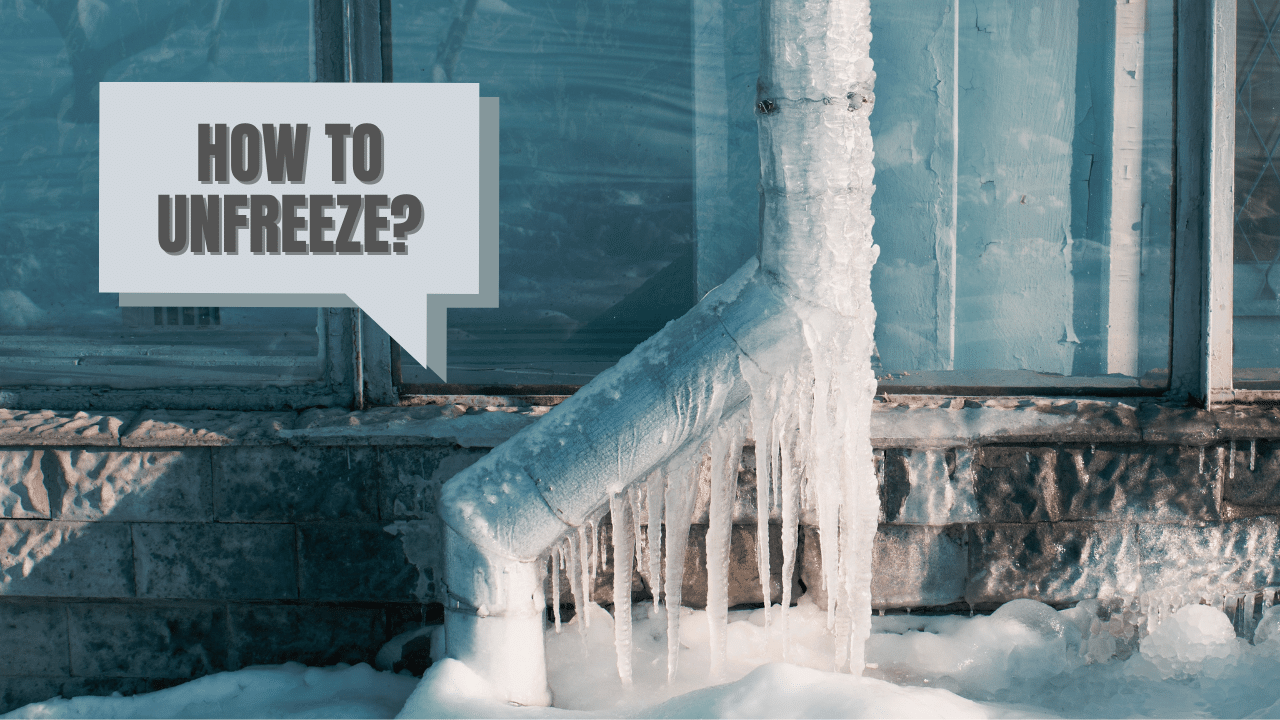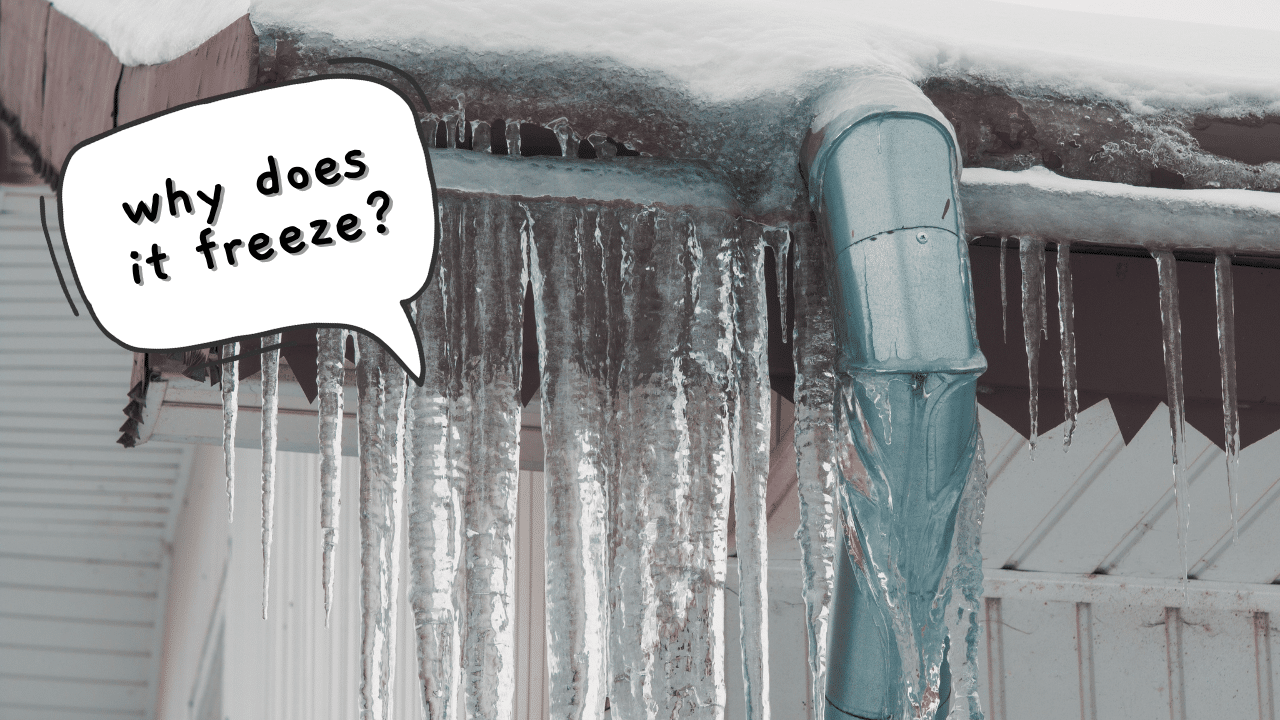The cold temperature affects your clothing style and what happens to your pipes either inside the house or outside. It could cause a number of damage when pipelines get frozen, but will frozen pipes thaw on their own? I took a look into it to see what could be done about those cold pipes.
Technically, frozen pipes can thaw on their own; however, the waiting game is risky as pipelines melt they can increase pressure, leading to the pipe bursting. In addition, when the water freezes, it expands; the added water between the ice and pipes builds tension when it thaws.
So you could wait it out and hope that your pipes don't get in any way damaged, but there are methods that you could use to try to resolve the problem better and faster. These methods also don't necessarily mean you need to call for professional help that would cost you an arm.
Ways to Unfreeze your Pipes
Frozen pipes will, over time, fix themselves up, as it starts melting away as temperatures increase; however, this melting period (thaw) takes time. This time, most people already want to jump into the shower and get ready for their day ahead. Ironically the majority of people will just run hot water to try to resolve the problem.
Which is all good; hot running water will help thaw the ice over the time of an hour or two. In addition, running water from the faucet reduces the risk of causing more pressure to build up from behind the blockage. On top of that, the hot water will melt that frozen water over time; however, try to keep the amount of water running to a minimum, especially if you don't see any change.

There are other DIY ways that you can find around the house to try thaw the blocked frozen pipes, such as using a hairdryer, heat lamp, hot towels, or electrical heating tape. The only problem with these methods is that you need to know precisely where the blockage is. If you don't, it's pointless as it needs to be used directly on the blocked areas.
The best way to never get frozen pipes is to prevent it from happening rather than sit for an hour or two trying to unblock your pipes in the morning. Preparing your pipelines for the cold will make you never come across frozen pipes again.
Try not to use any devices that use flames to warm up the ice, to unblock the pipes. It's unsafe and unwise to do so as it could cause injury, or worse, you could accidentally cause a fire to start. Instead, always keep a check on the heat sources that are being used.
Prevention Methods
A households pipelines can easily be insulated with insulation foam that protects the pipes from cold weather and physical damage. You can buy insulation foam wraps that usually have sticky material inside that can fix the foam onto the tubes, so it isn't lost. This type of insulation is used for any kind of pipes that run water, whether outside or inside.
It isn't just foam used to insulate pipes but can be other materials such as tinfoil, reflective insulation material, fiber glass and frost blankets for those extreme dropping temperatures. All of these work perfectly and can prevent any water from freezing up and preserve the quality of your pipes.
Another way to prevent your pipeline from freezing up is to let the faucet run in a predicted time of cold temperatures that could cause freezing. You don't have to leave the faucet open too much; a little bit will do. That small amount of water running through the system will be enough to keep the water from icing.
Check around the house if any pipelines go from the interior of the house to the exterior where the pipes aren't insulated. These pipes can cause a blockage from the outside to the inside lines; water makes its way up and spreads across the pipeline due to water freezing. These pipes should either be insulated or be blocked off by valves when not in use.
Why Pipes Freeze
Water in its molecule state is fascinating; it has small spaces between its atoms that cling to one another, allowing it to keep its motion.

However, once it starts to freeze, those molecules expand, creating bigger spaces apart from one another. Thus, the state of water freezing happens across your pipeline until all available room to fill can't be filled anymore, creating pressure across the area.
In simpler terms, whatever leftover water was used from washing your dishes or hands by any chance starts to freeze, causing that pressure, leading to problems down the line. The freezing water pipes then rupture as the water inside swells when turning into ice, applying a lot of pressure onto the pipes from the inside. It can also occur when the water starts to melt or thaw; the additional stress then cracks or bursts the pipes.
The temperature you should be looking out for is anywhere below 32 degrees Fahrenheit; that's when you can see problems occur in sprinkler systems found outside the house; this can also be considered for inside the house. So it’s for the best of interest to keep an eye out, and as soon as you see the temperature dip, try warming up the house.
Conclusion
Having pipes in your house or even outside that are frozen can be frustrating, especially if you don't have the time for it. Thankfully though, it can be taken care of on your own by following these basic methods to melt it and remove the obstacle slowly. You wouldn't have to do these things with due time as the frozen pipes will thaw on their own.
It is advisable to follow prevention methods instead to ensure that you will never have to wait again for the pipes to unblock. The prevention methods are easy to apply around the house and affordable. First, you need to make sure that all pipelines are correctly insulated and if that doesn't work, try keeping the house warm, and faucets may be running at night.
